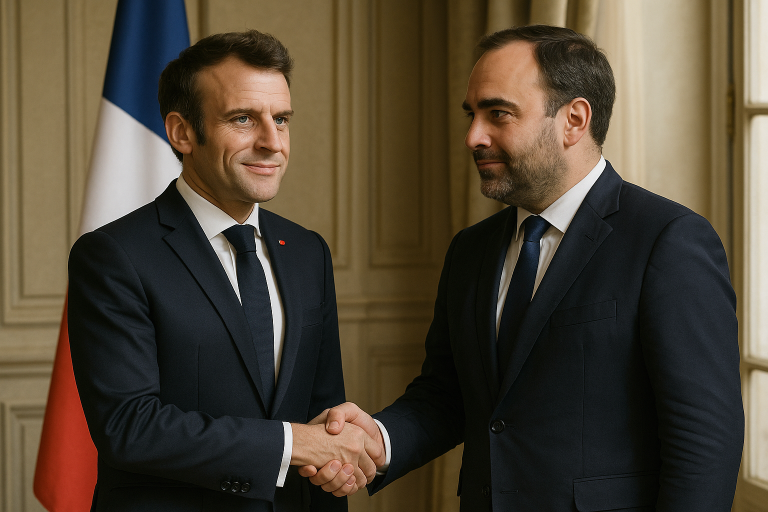In a surprising move, France President Emmanuel Macron reappointed Sébastien Lecornu as prime minister only days after his resignation plunged the government into crisis.
The move caught everyone off guard, especially since France is facing one of its worst political deadlocks in decades.
With a deeply divided National Assembly, it’s been nearly impossible to form a stable government or push through key legislation.
What’s behind Lecornu’s reappointment as France’s PM
One of the biggest reasons Macron decided to bring Lecornu back is the urgent need to get the 2026 state budget passed on time.
French law sets a tight deadline, and meeting it is crucial, not just to keep the government running smoothly, but also to maintain confidence in the financial markets.
Lecornu now has the heavy task of presenting a budget by mid-October. Missing that deadline could push up economic pressure, spark social unrest, and shake investor confidence.
In other words, Macron’s move sends a clear message: in today’s high-stakes political climate, there’s no room for delays or instability.
But it’s not just about the budget. France also desperately needs political and institutional stability right now.
Lecornu had resigned earlier after struggling to form a cabinet that could secure enough support in a fragmented National Assembly, leaving a gap that risked tipping the government further into chaos.
Lecornu is one of Macron’s most trusted allies and a strong advocate for the president’s agenda, especially on economic reforms.
In a parliament that’s deeply divided and lacks strong majorities, having a prime minister who’s aligned with Macron is probably the best chance of pushing through key legislation, even amid fierce opposition.
With few alternatives who could command broader support, bringing Lecornu back was really Macron’s clearest and safest option.
Risks and challenges ahead
Even with Macron’s backing, Lecornu has a tough road ahead, especially since there’s no clear majority in the National Assembly.
The parliament is so divided that passing any legislation, or the all-important 2026 budget, will be extremely challenging without building alliances or making compromises.
If Macron’s team can’t navigate these tricky negotiations, the risk of prolonged gridlock and legislative paralysis is very real.
To make things even harder, Lecornu faces stiff opposition from both the far-left and far-right, many of whom are openly hostile to his government.
Some are calling for the Assembly to be dissolved, while others want major policy reversals.
That kind of resistance makes coalition-building nearly impossible and only deepens the political stalemate, shaking public confidence even further.
The political developments are coming in the backdrop of the 2027 Presidential elections, and with politicians starting to do the math, crafting coalitions is going to be difficult than expected.
This kind of election-driven maneuvering only adds another hurdle to forming a stable, long-lasting government.
The post Why Macron has reappointed Lecornu as France’s PM appeared first on Invezz

